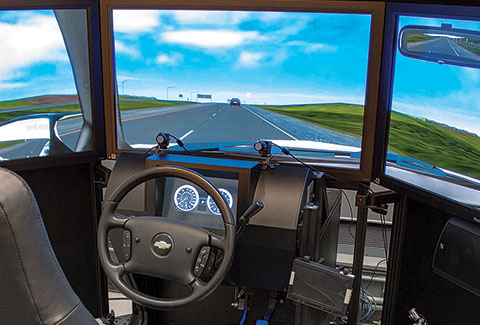Summer is peak driving season for Canadians, which means that it’s also peak season for traffic accidents. And, according to the Ontario Provincial Police, distracted driving has eclipsed driver impairment and speeding as the number one cause of road deaths in Ontario.
Birsen Donmez, a professor of mechanical and industrial engineering, is seeking to address this problem. She uses a vehicle simulator (pictured, above) to test how using technologies such as cell phones or satellite radio affect driver attention – and to see how feedback such as warning lights and auditory cues can be used to motivate people to drive more safely.
Donmez has found that when it comes to how easily drivers let themselves be distracted, they are more heavily influenced by what they believe the general population is doing than by their perception of what people close to them think they ought to do. So, for example, an eye-tracking system that reminds drivers who glance away for more than two seconds to look back at the road might not be as effective as one that also informs drivers how well they scan the road – and avoid distracting activities – compared to the average driver.
While it’s possible that one day soon cars will be able to drive themselves, in the meantime, Donmez’s research may help make them safer.






